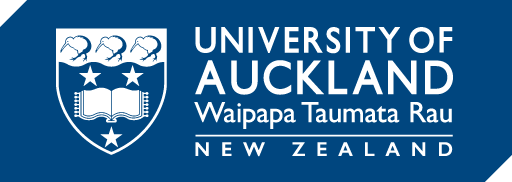We were pleased to host Phase 2 of the development of the Infodemic Project, spearheaded by the Vice-Chancellor of the University of Auckland, Prof Dawn Freshwater, and that had completed its Phase 1, under the leadership of Dr Jingwen Mu, in collaboration with several other researchers from the University of Auckland with the involvement of key players from the Association for Pacific-Rim Universities (APRU) as well. Read more about Phase 1 here.
Phase 2 of the Infodemic Project was led by Dr Simona Fabrizi, co-Director of the CMSS in collaboration with a core team consisting of Dr Jingwen Mu, Dr Eryn Newman and Dr Katja Rangsivek, assisted by a post-doc fellow, Dr Fan Zhang up until March 2025.
An Academic Advisory Committee had being established as well, with an inaugural e-meeting held on Wed, 22 May 2024.
The project has currently been paused, to reassess possible directions of the development of the project, going forward.
Members of the Academic Advisory Committee are listed below:
- Ex-officio, Prof Dawn Freshwater, Vice-Chancellor, University of Auckland, New Zealand
- Prof Francis Bloch, Professor Université Paris 1 Panthéon Sorbonne and Paris School of Economics, France
- Prof Ashley Bloomfield, Professor in the School of Public Health, and Director of the Public Policy Impact Institute (PPII), University of Auckland, New Zealand
- Prof Richard M Carpiano, Professor in Public Policy, University of California, Riverside, USA
- Dr Ana María Castillo Hinojosa, Department of Social Communication and Co-Director Artificial Intellingence and Society Hub, Universidad de Chile, Chile
- Prof Jennifer (Jen) Curtin, Director of the Public Policy Institute (PPI), Faculty of Arts, University of Auckland, New Zealand
- Prof Shirley S. Ho, Associate Vice President Humanities, Social Sciences & Research Communication, Nanyang Technological University, Singapore
- Prof Ran Wei, School of Journalism and Communication, Chinese University of Hong Kong, Hong Kong
- Dr Thomas Schneider, Chief Executive, Association for Pacific Rim Universities (APRU), Hong Kong
- Prof Michael Witbrock, Computer Science and Director of the Centre for Natural, Organisational and Natural Intelligence (NAOI), University of Auckland, New Zealand
- A/Prof Jens Zinn, Tr Ashworth Associate Professor in Sociology, The University of Melbourne, Australia
Some of the project milestones and events associated with it can be found below.
- CMSS One-Day Workshop on Mis- & Dis-Information – 27 August 2024
- Contribution to the upcoming NAOInstitute Symposium – 15 November 2024. For more info, visit https://www.naoinstitute.auckland.ac.nz/events/
Background
The harms caused by misinformation and disinformation associated with the Covid-19 pandemic were so far-reaching that the World Health Organisation (WHO) coined the term ‘infodemic’ to describe it. There is a need to deploy an evidence-based approach to examine the factors driving the infodemic on a global scale. Increased understanding of these factors will enable governments, nations, and the world to prepare for future pandemics and similar global challenges.
Beginning in 2022, the University of Auckland, as part of Asia Pacific Research Universities (APRU) Infodemic Initiative, developed a Misinformation Resilience Index (MRI) in response to this challenge. In Phase 1, researchers carried out a proof of concept for the MRI by using publicly available data on social media usage, trust in science, and legislative actions. The MRI provided a composite score for a population’s exposure and resilience to misinformation. There was a remarkable correlation between the MRI and vaccine uptake. No correlation was found when the MIR was tested with a country’s economic well-being. Case studies in Australia, China, Hong Kong, and Singapore supported the MRI’s feasibility but underscored the need for further refinement. Please find more on the early stage working paper on this project, following this link ‘A Misinformation Resilience Index to Inform Policy and Practice‘.
Phase 2 of the project aimed to establish transparent methodologies to better understand the phenomenon of mis- and dis-information and expand its applicability beyond the context of the Covid-19 pandemic and vaccine uptake.

Recent Comments